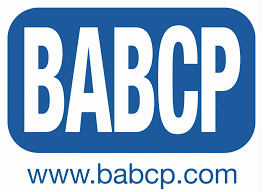Think You Have OCD? How to Regain Control of your Life
“I’m so OCD about keeping my house in order”. Does this sound like a familiar phrase? People describing themselves or others as having OCD has become so common and is often used casually in conversation to describe a tendency to want to have everything organised and in its place. But is this really what psychologists mean when we diagnose or treat someone with OCD? And if you do think you have OCD, what can you do about it? Keep reading to find out!
What is OCD?
OCD is a common type of anxiety disorder. It typically involves the presence of obsessions and sometimes, compulsive behaviours.
- Obsessions are recurrent and persistent thoughts, urges, or images that are unwanted and experienced as intrusive to the person having them.
- They frequently have a certain theme to them, such as a fear of contamination from germs/bacteria, having forbidden or “taboo” thoughts that can be religious, aggressive, or sexual in nature, involve a fixation of symmetry or repeating, ordering, or counting things in the mind, or fears about having missed something or not done something right
- Compulsive behaviours are how the person copes with the intrusive thought and are behaviours that the person feels they MUST do in order to prevent their thought from coming true
- Examples of compulsions are excessive hand washing, checking doors/locks many times, counting or repeating prayers, or engaging in superstitious behaviours
When a person is dealing with OCD, these intrusive thoughts and/or resulting compulsive behaviours cause a lot of distress and can have a huge impact on daily routines such as attending work, school, or having positive relationships. Often, someone with OCD may feel like it is taking over their lives and consumes a lot of time each day to cope with the intrusive thoughts and engage in any compulsive rituals that temporarily provide relief.
Three Things that Make OCD Worse
- Automatically believing the intrusive thoughts are true: when obsessive thoughts go unchallenged and are automatically accepted as being facts simply because they come into your mind, you are more likely to feel anxious about it, and then want to engage in a compulsive behaviour to make this thought go away.
- Avoidance: avoiding activities due to obsessive thinking and the fears that arise from these thoughts, such as refusing to use public toilets or cook meat in your home due to a fear of contamination and becoming ill.
- Engaging in compulsions: while it is natural that compulsive behaviours arise out of a strong urge and are a coping strategy when you are feeling really distressed from an intrusive thought, in the long run compulsive behaviours only strengthen the OCD symptoms.
Treatment for OCD
OCD can be very treatable, so if you think you have symptoms, don't despair! A clinical psychologist who has specialist expertise in working with OCD will be up to date on all the latest research on OCD treatments, and will be trained in the current gold standard of this, which is Exposure and Response Prevention (ERP), a type of cognitive behavioural therapy (CBT) specifically designed for people with OCD.
ERP will help you to identify your triggers, the resulting obsessive thoughts, and resulting compulsive behaviours, increasing your self awareness of OCD cycles. Your psychologist will then work with you to create a list of activities that trigger these intrusive thoughts and order them from easiest to most difficult.
You will then work together to systematically address each of these scenarios step by step, while preventing yourself from engaging in compulsive behaviours. By going through this process, your brain will learn that while anxiety temporarily increases, it eventually goes away even if you do nothing about the thoughts.
ERP can seem like a daunting task, but remember that your psychologist will work collaboratively with you to discuss any fears you have about starting, and pace therapy appropriately along the way. ERP has been highly successful in helping people with OCD feel empowered and in control of eliminating or managing their symptoms. In some cases, it may be helpful to speak to your GP about starting on some medication to help maximise the benefits of therapy, but this is something to be discussed as you go, as not everyone with OCD requires medication in addition to therapy.
If you are struggling with symptoms of OCD that are impacting on your life, please use the contact form on the website to schedule in a free 15 minute consultation.



















